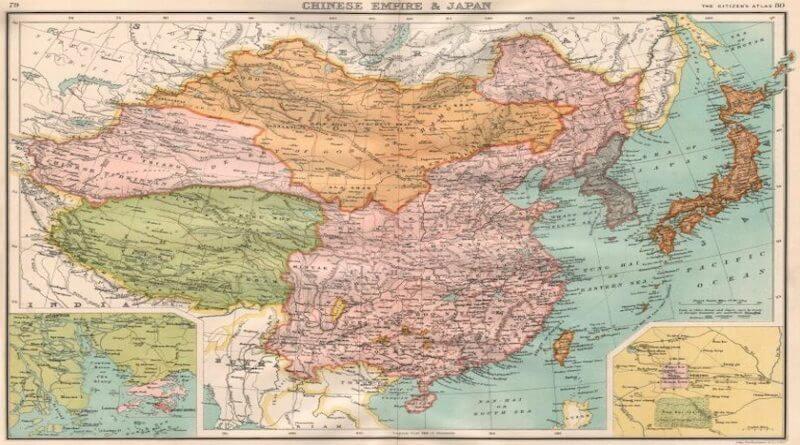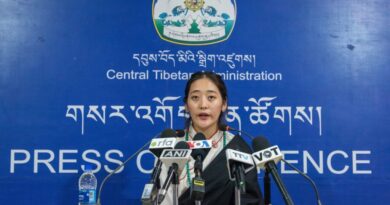A NEW WORLD ORDER EMERGES
THE RETURN OF CONTIGUOUS EMPIRES
A blog on China’s gamble on emerging a winner from Russia’s war against Ukraine
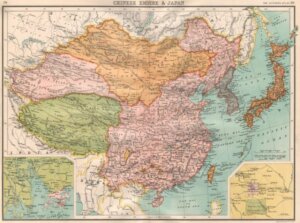
Any time anyone anywhere outside China raises violations of the human rights of Tibetans, China instantly and angrily dismisses their concerns as illegitimate interference in China’s sovereign internal affairs. The substance of specific cases, of specific individuals who are being tortured, need never even be looked at, since human rights representations are just an imperialist excuse for meddling in China’s internal affairs. In China’s eyes, all talk of human rights is part of the vast imperialist conspiracy to weaken China, hold it back, prevent its rise.
Tibetans have, over many decades, had their anguish at fellow Tibetans arrested and sentenced to long stretches in jail, rejected, in the name of non-interference, over and over. China makes maximum use of the non-interference doctrine to stifle debate, knowing it is a foundational principle of the United Nations. The UN was born in 1945 as a world war ended, after having begun with Germany’s interference in Czechoslovakia and Poland, Japan’s interference in China. That is what enables China’s maximal use of non-interference between sovereign nations, since it leads to catastrophic wars.
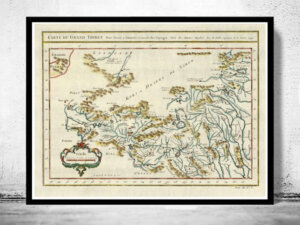
So how is it now possible that Russia invades and destroys Ukraine, and China has nothing to say about interfering in the internal affairs of a sovereign nation?
Why has Xi Jinping’s China sided with Putin’s Russia, including Putin’s destruction of Ukraine?
The standard answer is that the China-Russia alliance is an unemotional, realpolitik calculation of instrumental utility, driven by mutual loathing of the American insistence on being the sole global superpower. There are even geopolitical strategists speculating that from the outset China has wanted Russia to fail, be weakened, and even more dependent on China.
China’s most influential geostrategists see this moment as the arrival of new world order, in which tigers mercilessly hunt down their prey, only the strong will prevail, and the weak, such as Ukraine, must yield.
A party-state regime favourite, Zheng Yongnian says: “Small countries must survive in the cracks between big ones, so they must have politicians with superb political calculation skills and superb diplomatic skills. Naive politicians in Ukraine fantasize about relying on the strength of the United States and NATO for their own security. Since independence, Ukraine’s sense of insecurity is real, but Ukraine’s sense of security can only be achieved between Russia and NATO. Ukrainian leaders did not do this, instead, they wanted to seek safety by “bringing wolves into the house”. But the problem is that once Ukraine “brings wolves into the house”, then Russia will have no sense of security. Once the big country Russia feels unsafe, the small country Ukraine will inevitably become a victim of its own behaviour.”
According to this logic, Ukraine has brought its ruin on itself, as did the Tibetans and Uighurs.
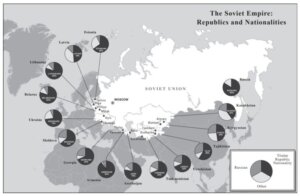
As the war grinds on, strategists in China are now coming up with rationales, based on the assumption that when two empires -Russia and the US- slug it out, China can only benefit, whatever the military outcome. Ukraine is merely the proxy battlefield, as two tired, overstretched superpowers do battle. China, the rising, unstoppable power, wins either way.
Underlying Putin’s calculations is a deepseated belief in empire, and the imperative of restoring the glory of a contiguous empire. Putin’s article of faith is drenched in the emotions of imperial destiny, grandeur, masculinity and historic inevitability.
In the thinking of both Xi Jinping and Vladimir Putin those imperial yearnings hide in plain sight, seldom noticed, yet said explicitly and publicly.
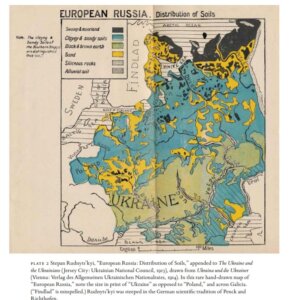
Putin overtly names the original sin of the Soviets as Lenin’s granting of autonomy to the Ukrainians, Georgians, Kazakhs, Uzbeks and so on, more than 20 republics within the borders of the USSR. Putin explicitly names Ukrainian autonomy, established a century ago, as the cardinal error he is now correcting, in 2022. Immediately prior to invading, Putin said “I would like to emphasize again that Ukraine is not just a neighbouring country for us. It is an inalienable part of our own history, culture, and spiritual space. Modern Ukraine was entirely created by Russia, or, to be more precise, by Bolshevik communist Russia.”
That speech was received in the West as rambling and incomprehensible. Yet it establishes empire as foundational, and the Soviet era as an unfortunate blip on a bigger, deeper, longer imperial history. That positions Putin as the heir of Ivan the Terrible and Peter the Great.
 Contiguous empires are not the same as the scattered overseas empires that fell apart 60-70 years ago. Britain and India had little by way of deep connections, likewise Portugal and Angola, Belgium and Congo. When force faltered, it all fell over, though the French have managed to retain a strong quasi-colonial hold over Francophonie west Africa.
Contiguous empires are not the same as the scattered overseas empires that fell apart 60-70 years ago. Britain and India had little by way of deep connections, likewise Portugal and Angola, Belgium and Congo. When force faltered, it all fell over, though the French have managed to retain a strong quasi-colonial hold over Francophonie west Africa.

Seldom is the distinction made between contiguous and scattered empires. It is the rise and fall of Europe’s empires that everyone focuses on, as if contiguous empires that conquer and annex neighbours are ancient history.
This may be because the collective rights of peoples to self-determination became a core principle of the international system only after the great contiguous empires -the Ottomans and the Habsburgs- had already fallen, just over a century ago. The Russian empire somehow survived both WW1 and revolution, whereupon Lenin, beset by enemies, granted a high level of autonomy to over 20 republics that constituted the USSR -the Union of Soviet Socialist Republics. Lenin’s enemies were focussed on defeating socialism, not the empire.
The Chinese empire created in the early 18th century by the conquering armies of the Manchu Qing dynasty, crumbled when the Qing dynasty fell in 1911, yet was never formally abandoned. The new empire, of Japan seizing Korea and Manchuria, was the immediate concern. Yet both of China’s rival parties, the KMT and CCP were alike in demanding the restoration of China’s full inland Qing conquests, to be run as colonies by Beijing. That is what contiguity means.
In today’s world all of this seems like ancient history, obscure and nerdy, nothing to do with contemporary realities. Not so. While there is not the slightest sign that Austria longs to restore the Habsburg empire, Turkey is regularly seen as boldly asserting itself as a regional power, a re-assertion of Ottoman reach. But it is the great contiguous empires of Russia and China that are on a mission to regain, fortify and defend imperial glory, missions of manifest destiny. The world has suddenly noticed only in 2022.
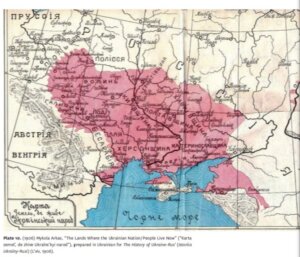
Ukraine 1906
Nor is it accidental that in both China and Russia the imperial mission requires an emperor, a tsar helmsman who commands total obedience, crushes all dissent, defines everything as a security risk to be forcibly controlled.
China’s “peaceful liberation” of Tibet required a full-scale war, of artillery and aerial bombardment of nomads with only muskets, walking at the pace of their yaks herds. Only now, with publication in English of Jianglin Li’s When the Iron Bird Flies, is the brutality of this conquest, akin to Putin’s destruction of Ukraine, in the public domain. Even the technologies of violence are the same -artillery and aerial bombardment- whether in Amdo and Kham in the 1950s, Grozny 2000, Aleppo 2016-17, and Ukraine 2022. Putin has done this over and over, each time rebuilding Russia’s empire.
Are we taking the parallels too far? Surely there are major differences between the Russian and Chinese empires, in how their neighbours were conquered, governed, autonomised and now recentralised? Surely there is a difference between the 1950s, when the Soviets were elder brothers to the Chinese Communist Party and now, with Russia diminished and China surging? Surely the CCP blaming resurgent minority nationalism as the downfall of the USSR is different to Putin’s blaming Lenin for having allowed Ukraine and other Soviet republics much autonomy in the first place?
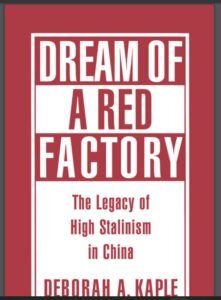 Such differences do exist, yet don’t add up to much. China is now elder brother to Russia, yet conveniently amnesic about losing huge territories to Russia, both the “great northern wilderness” that is now Russia’s Far East, and (Outer) Mongolia, which was a Soviet protectorate when Mao’s revolution came to power and had to be yielded to the elder brother.
Such differences do exist, yet don’t add up to much. China is now elder brother to Russia, yet conveniently amnesic about losing huge territories to Russia, both the “great northern wilderness” that is now Russia’s Far East, and (Outer) Mongolia, which was a Soviet protectorate when Mao’s revolution came to power and had to be yielded to the elder brother.
Xi Jinping also takes the long view, of China’s deep imperial history, and thus its destiny. His 2021 “historical resolution” on a century of CCP history asserts a lineage starting with Mao and Deng, and then himself, the many other leaders are largely airbrushed out.
Following the advice of the Soviet elder brother, Mao did establish “autonomous” regions, prefectures and counties across China, nominally privileging specified minority nationalities for whom these territorialised entities were deemed homelands.
 To attribute the dissolution of the Soviet regime to just one factor, of ethnic nationalists demanding full autonomy, is a gross oversimplification, but it continues to dominate CCP thinking, and to question it is the serious crime of “historical nihilism.” For the past 20 years the CCP has done all it can to undo that nominal autonomy, for fear of repeating the weakness that tore the USSR asunder, as the CCP sees it.
To attribute the dissolution of the Soviet regime to just one factor, of ethnic nationalists demanding full autonomy, is a gross oversimplification, but it continues to dominate CCP thinking, and to question it is the serious crime of “historical nihilism.” For the past 20 years the CCP has done all it can to undo that nominal autonomy, for fear of repeating the weakness that tore the USSR asunder, as the CCP sees it.
Is it now too big a stretch to say autonomy not only wrecked Soviet power in 1990 but that the seeds of destruction were sown in the 1920s, when Lenin’s regime was weak, enemies everywhere, and he needed allies? That is Putin’s allegation. When the Soviet elder brother in the 1950s proposed China adopt somewhat similar regional autonomy within the sovereign People’s Republic, they repeated their cardinal error. So we are now told, as a known known.
Russia under Putin declares that the invasion of Ukraine completes the mission of de-communisation, while China declares itself Marxist and socialist. That seems like a big difference. Arguably, China in practice embraces neoliberal state capitalism, and puts Marx on a pedestal to connote China’s uniqueness, differentiating itself from the beautiful country, China’s name for the US, which it emulates in every way.
ALIEN RULE
Whether or not China is socialist and/or Marxist needs much consideration, but not here. What matters is the alien rule of imperialist conquerors over territories contiguous with the imperial heartland, a heritage China and Russia share.
Alien rule is problematic in both contiguous and scattered empires. But contiguity makes it much easier to move in settlers to the adjacent conquered lands, to absorb and assimilate the minority nationalities, to gradually turn an empire into a nation-state. In a contiguous empire it is easier to make the conquered pay for their conquest, by linking their comparative advantages to the needs of the metropolitan core of empire. In Xinjiang, that meant mass production of cotton, melons, grapes, tomatoes, oil, gas, coal, smelters and more, all to serve inland China.
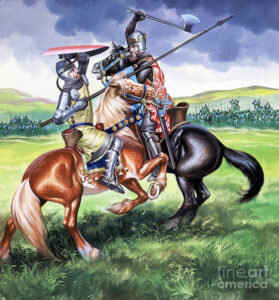 Making the alien rule of conquerors acceptable to the conquered is a big agenda, accomplished over several generations, requiring long term planning. Did England, after conquering adjacent Scotland, succeed in creating a United Kingdom? After conquering nonadjacent Ireland, did the English succeed in creating a single nation-state? Contiguity is more conducive to continuity. The Irish persisted in seeing the English as alien rulers and eventually threw them out.
Making the alien rule of conquerors acceptable to the conquered is a big agenda, accomplished over several generations, requiring long term planning. Did England, after conquering adjacent Scotland, succeed in creating a United Kingdom? After conquering nonadjacent Ireland, did the English succeed in creating a single nation-state? Contiguity is more conducive to continuity. The Irish persisted in seeing the English as alien rulers and eventually threw them out.
A big difference between China and Russia is that within a few years of the 1949 revolution China brought the empire it inherited from the Qing dynasty under Beijing’s control, while Russia struggles anew to restore its empire. Xinjiang was made Chinese by forcing large numbers of revolutionary troops to demobilise and work in state farms under semi-military command. Tibet became “China’s Tibet” as a result of full-scale war. The empire was thus restored, if you don’t count Mongolia, the great northern wilderness, Hong Kong or Taiwan. Of these, China counted only Taiwan and very recently Hong Kong as inherently, intrinsically, inevitably wholly Chinese, thus nobody else’s business.
NON-INTERFERENCE IS FOUNDATIONAL TO ALL INTERNATIONAL RELATIONS, UNTIL IT ISN’T
Thus we come to the core contradiction of the China-Russia brotherhood. China, having re-established its imperial boundaries, has insisted at every opportunity that the doctrine of non-interference in the internal affairs of sovereign states is the rock on which the entire peace of the planet is built. Non-interference has long been the drumbeat of China’s foreign policy, a drum banged loudly, drowning out the specifics of any and every issue the world is worried about in China. So sacred was the doctrine of non-interference, it excused any need to pay attention to the actual rights issue being raised.
The sanctity of non-interference comes directly from the 20th century world wars, their many invasions and counter-invasions. The only way to outlaw invasions and guarantee peace between sovereign nations is this doctrine of non-interference.
So important is this doctrine of non-interference, it is hard to see how China can just bypass it when it comes to the grossest of violations of non-interference, Putin’s invasion of Ukraine.
Almost alone, history Prof Xu Guoqi has spoken up “It is unacceptable for human civilization to return to the savage wars of the 18th century to invade another country in the 21st century. As historians, we think that the page has been turned over. But history is repeating itself. Today’s repetition may lead to a third world war, and it will lead to no return.”He and other historians appealed in an open letter, “We firmly support the Ukrainian people’s actions to defend their country. We are concerned that Russia’s military action will lead to instability in Europe and the entire world, triggering a wider humanitarian catastrophe.”
Anyone who has spoken up for Tibet has had the experience of raising specific cases of individual Tibetans arrested and tortured, cases presented to weary foreign ministry officials around the world, who dutifully raise these cases when they meet with China’s foreign ministry, knowing full well any mention of named individuals will be instantly dismissed as “interference in the internal affairs of China.”
No need to check specifics. To China, the entire apparatus of human rights was and is part of a global imperialist conspiracy to interfere in the internal affairs of China (and Russia). Non-interference sweeps it all aside. China cannot see itself as an empire, it is a victim of imperialism, and has now stood up.
A BROTHERHOOD OF IMPERIALISMS
For China to fall silent on non-interference in the case of Ukraine is such a glaring contradiction, there has to be compelling reason, not just the convenience of the current China-Russia transactional deal. Restoring Russia’s contiguous empire is that compelling reason. In a moment of weakness 30 years ago Russia lost an empire, and will now do whatever it takes to regain it. China under Xi Jinping understands that.
China accepts Putin’s framing of the Ukraine invasion as primarily a contestation between empires, the Pax Americana and Russia, with Ukraine merely the proxy battleground. A few years ago the site of proxy war between imperiums was Syria, now Ukraine.
Yet siding so consistently with Putin is highly risky, as ultra-nationalist Hu Xijin, ex-editor of Global Times, pointed out within a few days of the start of the war for Ukraine: “This Russia-U.S. contest is destined to be a war of attrition that includes sanctions. Therefore, the outcome of this war is not only reflected in the Ukrainian battlefield and the negotiating table, but also depends on whether Russia can withstand comprehensive sanctions from the United States. Different outcomes will, of course, profoundly affect all aspects of international relations, and even reconstruct its basic environment to a large extent. China’s national interests will be at stake. Russia is like a sand table, and everything that happens on this sand table is worthy of careful observation by the Chinese. When the Soviet Union disintegrated in 1991, that lesson was like a political vaccine for Chinese society, and it has worked to this day. Now that Putin gets his hands on it, let’s see what happens.”
China above all wants stability, not risk. Yet China’s definition of domestic stability empowers state violence, mass incarcerations, ethno-racialization, surveillance, and mass detention that promotes settler colonialism.
The crushing of Ukraine may look uncannily familiar to a Chinese party-state which has its own model of terror capitalism to suppress the Uighurs and Tibetans.
“China’s leadership has calculated that it must try to rise above what it considers a struggle between two tired powers and be seen as a pillar of stability in an increasingly turbulent world.”
Gabriel Lafitte, an Australian Researcher and a dedicated and vocal environmental activist on Tibet. He has worked tirelessly for more than 40 years doing research work and highlighting the plight of Tibetan ecology.
The views expressed in this article are that of the author’s and should not be attributed to Tibet Express.

